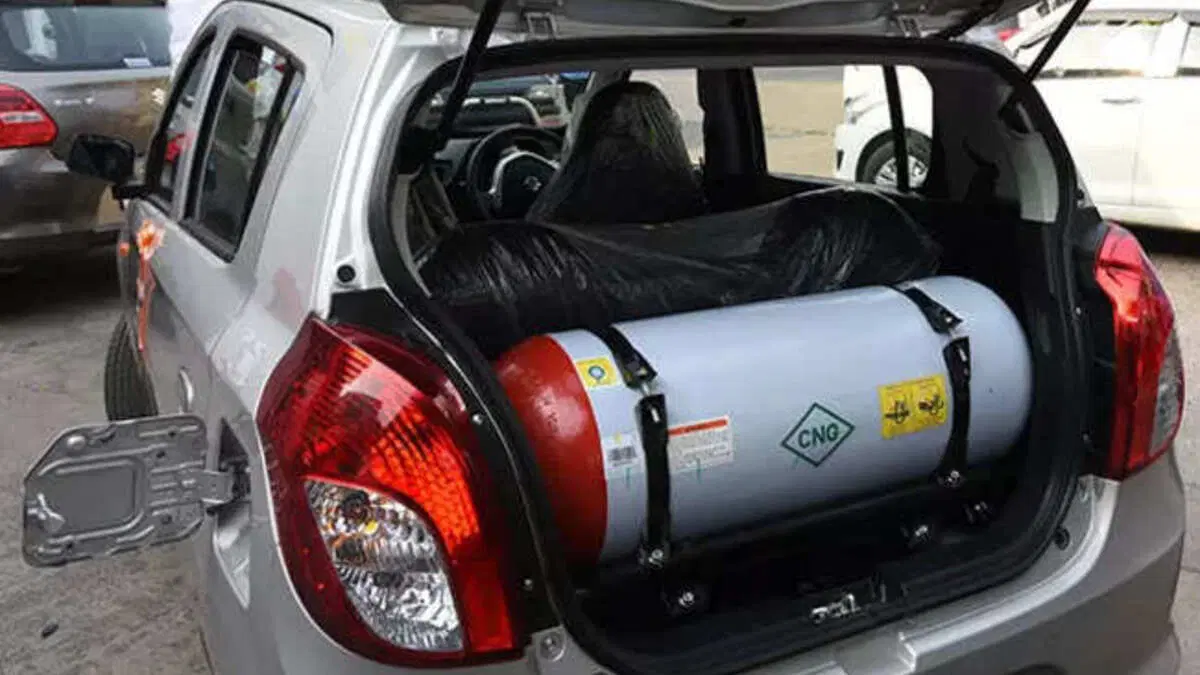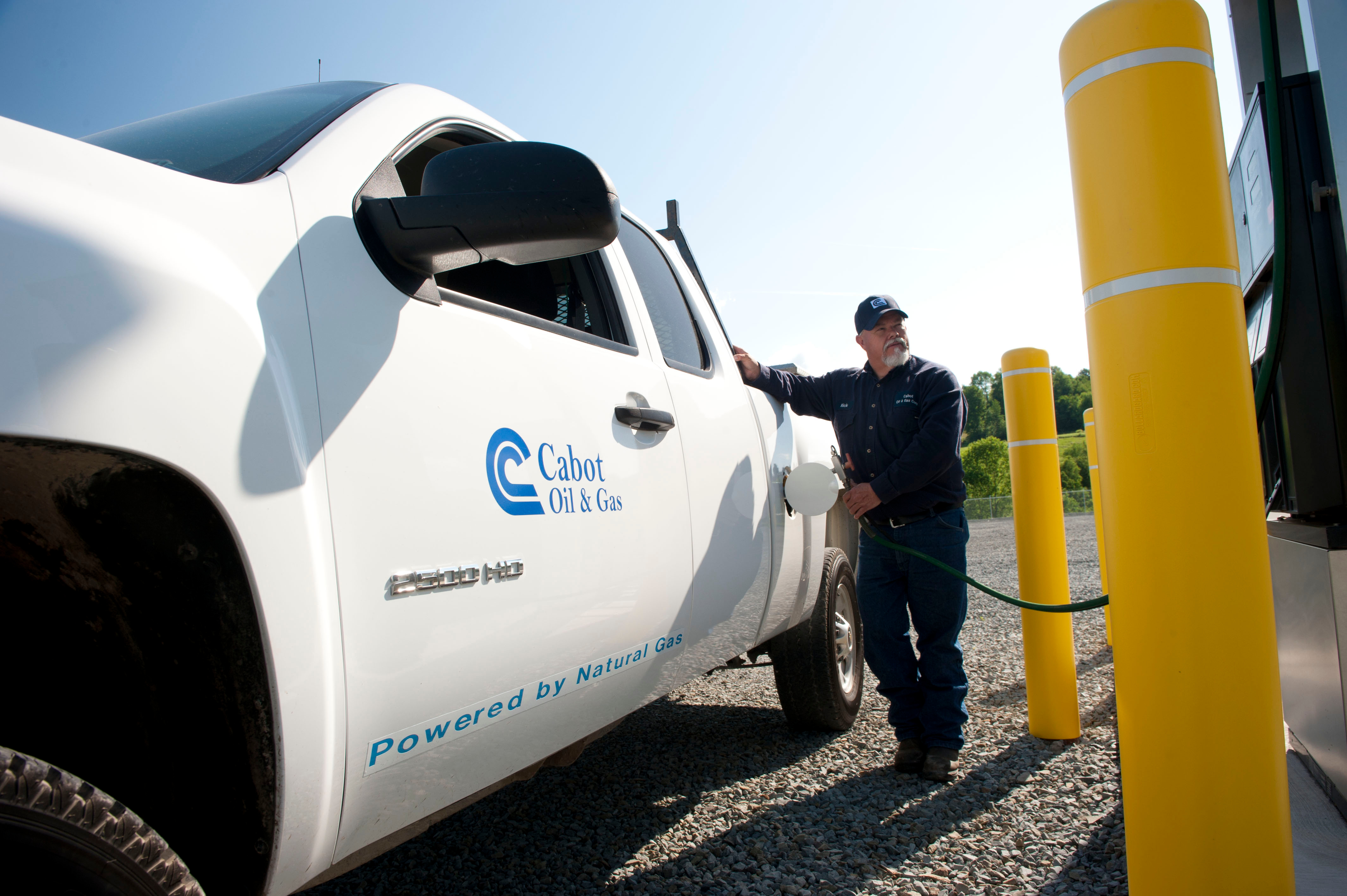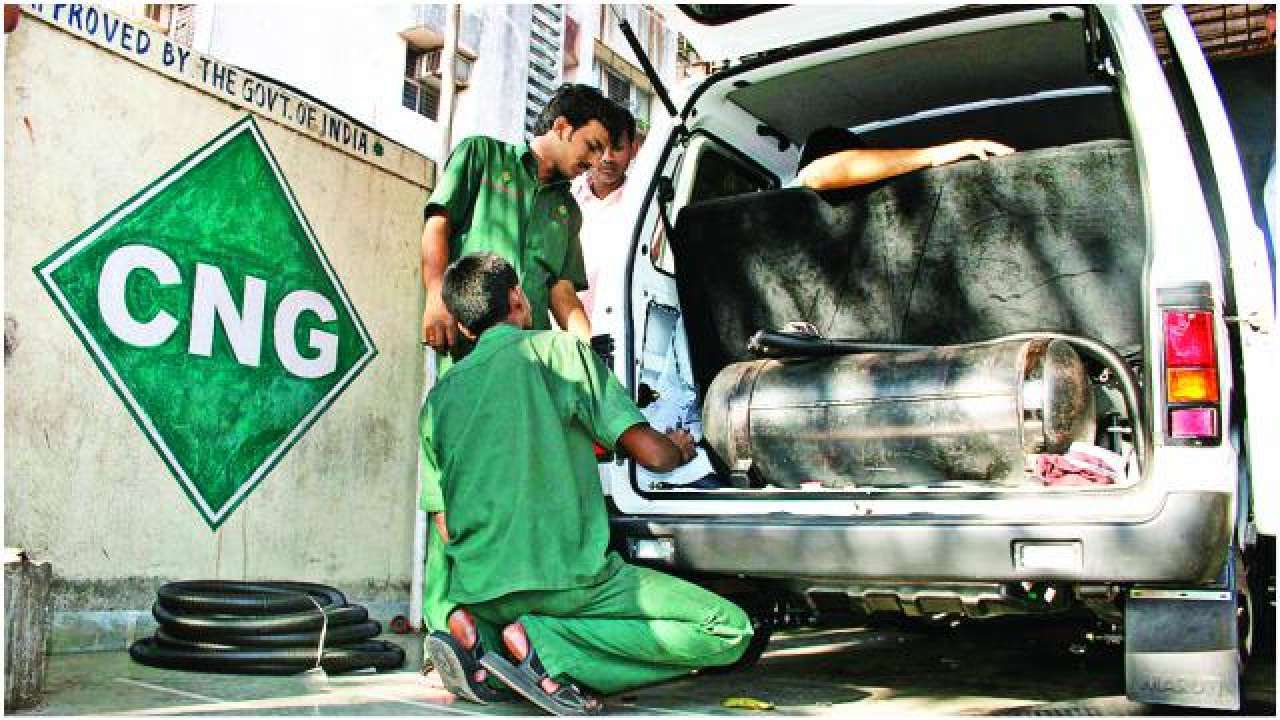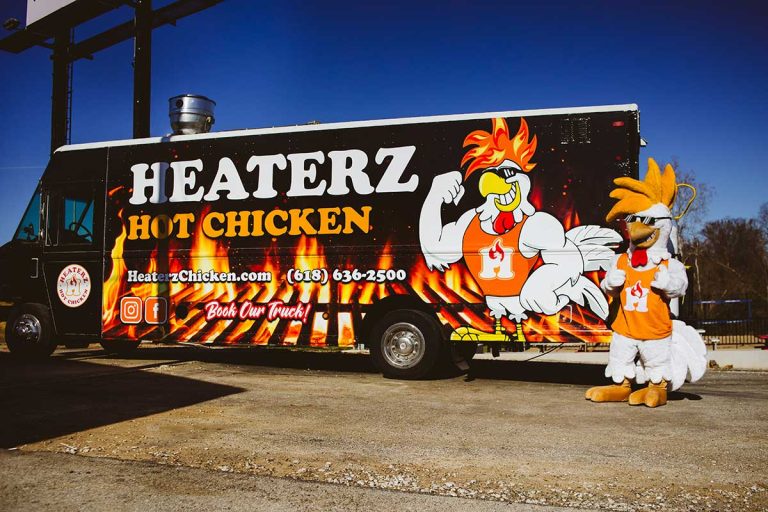CNG Pickup Trucks For Sale: A Comprehensive Guide to Sustainable and Economical Hauling
CNG Pickup Trucks For Sale: A Comprehensive Guide to Sustainable and Economical Hauling cars.truckstrend.com
The world of commercial and personal transportation is constantly evolving, driven by the need for greater efficiency, reduced environmental impact, and lower operating costs. In this landscape, Compressed Natural Gas (CNG) pickup trucks have emerged as a compelling alternative to traditional gasoline and diesel vehicles. For businesses and individuals seeking a greener, more economical, and increasingly practical hauling solution, understanding the nuances of CNG pickup trucks for sale is crucial. This comprehensive guide will delve into everything you need to know, from the inherent benefits and types available to key buying considerations, where to find them, and practical advice for making an informed purchase.
The Rise of CNG: Why Consider a Natural Gas Pickup?
CNG Pickup Trucks For Sale: A Comprehensive Guide to Sustainable and Economical Hauling
CNG pickup trucks are vehicles specifically designed or converted to run on compressed natural gas. Unlike their fossil fuel counterparts, CNG vehicles produce significantly lower emissions, contribute to energy independence, and often offer substantial fuel cost savings. Their relevance stems from a growing awareness of environmental stewardship, fluctuating fuel prices, and governmental incentives promoting cleaner transportation. For fleet operators, contractors, and even environmentally-conscious individuals, investing in a CNG pickup truck represents a forward-thinking decision that can pay dividends in the long run.
The Undeniable Benefits of CNG Pickup Trucks
Choosing a CNG pickup truck over a conventional model offers a host of advantages that extend beyond mere transportation:
- Environmental Superiority: CNG burns cleaner than gasoline or diesel, resulting in significantly lower emissions of greenhouse gases (GHGs), nitrogen oxides (NOx), carbon monoxide (CO), and particulate matter. This contributes to improved air quality, reduces your carbon footprint, and often aligns with corporate sustainability goals.
- Economic Advantages:
- Fuel Cost Savings: Natural gas is typically more stable in price and often cheaper per gallon equivalent (GGE) than gasoline or diesel, leading to substantial savings over the vehicle’s lifetime, especially for high-mileage users.
- Incentives and Rebates: Many governments and local agencies offer tax credits, grants, and rebates for purchasing alternative fuel vehicles and building CNG fueling infrastructure, further reducing the total cost of ownership.
- Reduced Maintenance: The cleaner-burning nature of natural gas can lead to less engine wear and tear, extending the life of engine oil, spark plugs, and other components, thereby reducing maintenance intervals and costs.

- Energy Independence: Utilizing domestically sourced natural gas reduces reliance on imported oil, bolstering national energy security and supporting local economies.
- Performance and Range: Modern CNG systems are highly sophisticated, offering performance comparable to gasoline vehicles. Bi-fuel options provide the flexibility of switching to gasoline if CNG isn’t available, eliminating range anxiety.
- Quiet Operation: CNG engines tend to run quieter than diesel engines, contributing to a more comfortable driving experience and reduced noise pollution.

Navigating the Landscape: Types of CNG Pickup Trucks For Sale
When searching for a CNG pickup truck, you’ll primarily encounter two main categories, each with its own implications:
- OEM (Original Equipment Manufacturer) Bi-Fuel Trucks: These are trucks built by major manufacturers (e.g., Ford, Ram, General Motors) that come directly from the factory equipped to run on both CNG and gasoline. They offer seamless integration, full factory warranties that cover the CNG system, and are often perceived as more reliable due to rigorous OEM testing. Examples include certain models of the Ford F-150, Ram 2500, and Chevrolet Silverado/GMC Sierra, though availability can vary by year and region.
- Aftermarket Converted Trucks: These are standard gasoline or diesel pickup trucks that have been retrofitted by a third-party certified conversion company to run on CNG (either as dedicated CNG or bi-fuel). While potentially offering a wider range of base vehicle options, it’s crucial to ensure the conversion is performed by a reputable company using certified components and adhering to all safety standards. Warranty coverage for the conversion system typically comes from the conversion company, not the original vehicle manufacturer.

Within these categories, you’ll also find:
- Bi-Fuel Vehicles: The most common type, allowing the driver to switch between CNG and gasoline (or diesel). This offers maximum flexibility, ensuring you’re never stranded if a CNG station isn’t available.
- Dedicated CNG Vehicles: These trucks run solely on CNG. While they simplify the fuel system, their practicality is highly dependent on the availability of CNG fueling infrastructure in your operational area.
Key Considerations Before You Buy
Purchasing a CNG pickup truck requires a different set of considerations than a conventional vehicle. Thoughtful planning can prevent future headaches and ensure maximum benefit:
- Fueling Infrastructure: This is arguably the most critical factor. Research the availability of public and private CNG fueling stations along your typical routes and within your operational radius. Tools like the Alternative Fuels Data Center (AFDC) station locator are invaluable.
- Upfront Cost vs. ROI: CNG trucks, especially new OEM bi-fuel models, can have a higher initial purchase price than comparable gasoline models due to the specialized fuel system. Calculate your potential fuel savings, factoring in your estimated mileage, and consider any available incentives to determine your return on investment (ROI).
- Range and Tank Size: Understand the CNG range of the specific model you’re considering. CNG tanks are bulky and typically reduce cargo space, especially in the bed. Consider underbody tank options or how a bed-mounted tank might impact your hauling needs.
- Maintenance and Servicing: While CNG can reduce some maintenance, specialized knowledge is required for the CNG system itself. Ensure there are qualified service centers in your area capable of maintaining and repairing CNG vehicles.
- Warranty and Certification: For OEM vehicles, confirm the warranty coverage for the CNG system. For aftermarket conversions, verify the conversion company’s certifications (e.g., EPA, CARB, NGVAmerica) and understand their warranty policy.
- Resale Value: While demand for CNG vehicles is growing, the resale market can be smaller than for conventional vehicles. Consider how this might affect your long-term ownership costs.
- Safety: CNG is a safe fuel when handled correctly. Vehicles and conversion systems are designed with multiple safety features. Ensure any aftermarket conversion adheres to strict safety standards and that the vehicle has passed all necessary inspections.
Where to Find CNG Pickup Trucks For Sale
Locating a CNG pickup truck requires a targeted approach:
- Authorized Dealerships: For new OEM bi-fuel models, start with dealerships of manufacturers known to offer CNG options (e.g., Ford, Ram, GM). They can also sometimes source used OEM models.
- Specialized Commercial Vehicle Dealerships: These dealerships often cater to fleet buyers and may have a wider selection of new and used alternative fuel vehicles, including CNG pickups.
- Online Marketplaces:
- General Automotive Sites: Websites like AutoTrader, Cars.com, and eBay Motors allow you to filter searches by fuel type, though CNG inventory might be limited.
- Commercial Vehicle Marketplaces: Sites like CommercialTruckTrader, TruckPaper, and Government Liquidation (for surplus vehicles) often list CNG options.
- Fleet Remarketing Sites: Companies that manage large fleets often sell their used CNG vehicles through specialized remarketing channels.
- Direct from Conversion Companies: Some certified conversion companies may also sell pre-converted trucks or offer to convert a truck you provide.
- Fleet Auctions: Keep an eye on local and online government or corporate fleet auctions, as they frequently sell off their used alternative fuel vehicles.
The Buying Process: Practical Advice and Actionable Insights
Once you’ve identified potential candidates, follow these steps for a smooth and informed purchase:
- Thorough Research: Don’t just look at the price tag. Dive deep into the specific model’s CNG system, its range, tank configuration, and reported reliability. Read owner reviews and expert analyses.
- Verify Fueling Infrastructure: Before you even test drive, map out the CNG stations in your primary operational areas. If they are scarce, a bi-fuel option becomes even more critical.
- Inspect the Vehicle (Especially Conversions):
- For OEM: Standard pre-purchase inspection applies.
- For Aftermarket: This is paramount. Get a qualified mechanic (preferably one familiar with CNG systems) to inspect the entire vehicle, paying close attention to the installation quality of the CNG system, tank mounting, fuel lines, and wiring. Request all documentation related to the conversion, including certifications and service history.
- Review Service Records: Look for a comprehensive maintenance history, including any work done on the CNG system.
- Understand Warranty Implications: Clarify what parts of the vehicle and the CNG system are covered and for how long. For aftermarket conversions, know who provides the warranty for the CNG system.
- Test Drive Extensively: Drive the truck under various conditions, including highway and city driving. Pay attention to performance, acceleration, braking, and any unusual noises. If it’s a bi-fuel, test both fuel modes.
- Negotiate Smartly: Arm yourself with market research for comparable CNG and conventional trucks. Be prepared to discuss the total cost of ownership, including fuel savings and potential incentives.
- Consider Financing/Leasing: Explore specialized financing options that might be available for alternative fuel vehicles, which can sometimes offer more favorable terms.
Challenges and Solutions
While CNG trucks offer significant benefits, there are some hurdles to be aware of:
- Limited Fueling Stations:
- Solution: Plan your routes meticulously using online station locators. Opt for bi-fuel vehicles to eliminate range anxiety and provide flexibility. Consider the feasibility of installing a private fueling station if you operate a large fleet.
- Higher Upfront Cost:
- Solution: Factor in long-term fuel savings and available incentives (tax credits, grants, rebates) to assess the true total cost of ownership and return on investment.
- Reduced Cargo Space (for bed-mounted tanks):
- Solution: Explore models with underbody CNG tanks, which preserve bed space. If a bed-mounted tank is unavoidable, ensure it still meets your practical hauling needs.
- Perceived Performance Differences:
- Solution: Modern CNG systems are highly optimized. Test drive the vehicle to experience its performance firsthand. Any minor differences are often negligible for most applications, especially considering the fuel savings.
Price Table: Estimated Costs for CNG Pickup Trucks For Sale
Please note: Prices are highly variable based on year, mileage, condition, specific model, OEM vs. aftermarket, and current market demand. This table provides estimated ranges for illustrative purposes and should not be taken as definitive pricing.
| Category | Example Models | Estimated Price Range (USD) | Key Considerations |
|---|---|---|---|
| New OEM Bi-Fuel | Ford F-150, Ram 2500, GM 2500HD | $45,000 – $75,000+ | Full factory warranty, seamless integration, high initial cost. |
| Used OEM Bi-Fuel | Ford F-150, Ram 2500, GM 2500HD | $20,000 – $50,000+ | Retains OEM quality, potentially lower upfront cost, check warranty remaining. |
| Used Aftermarket Converted | Various makes/models (e.g., F-150, Silverado) | $15,000 – $40,000+ | Wider selection, critical to verify conversion quality & certification. |
| New Aftermarket Conversion (Conversion Cost Only) | (Added to base vehicle cost) | $8,000 – $15,000+ | Cost to convert a new/used gasoline truck, does not include base vehicle. |
Disclaimer: These are general estimates. Always obtain current quotes from sellers and conduct thorough market research.
Frequently Asked Questions (FAQ) About CNG Pickup Trucks
Q1: Is CNG safe?
A1: Yes, CNG is a very safe fuel. CNG tanks are built to incredibly high standards and are significantly stronger than gasoline tanks. The fuel dissipates rapidly into the atmosphere if a leak occurs, unlike gasoline which pools. All CNG vehicles and conversion systems undergo rigorous safety testing.
Q2: Does CNG reduce engine power or performance?
A2: Modern CNG systems are highly advanced. While there might be a very slight, often imperceptible, difference in horsepower or torque compared to gasoline, for most practical applications, the performance is comparable and entirely sufficient for hauling and daily driving.
Q3: How far can a CNG pickup truck travel on a full tank?
A3: The range varies greatly depending on the tank size, vehicle model, and driving conditions. OEM bi-fuel trucks often have ranges comparable to gasoline vehicles when combining both fuel types. Dedicated CNG vehicles typically have a shorter range, making fueling infrastructure crucial.
Q4: Is it hard to find CNG fueling stations?
A4: CNG fueling infrastructure is growing but is still less widespread than gasoline stations. It’s essential to research and plan your routes. Many stations are located along major transportation corridors or at fleet depots. Bi-fuel trucks mitigate this concern.
Q5: What about maintenance for a CNG system?
A5: CNG burns cleaner, which can extend oil life and reduce some engine wear. However, the CNG system itself requires periodic inspection and maintenance by certified technicians. Ensure your local service center is equipped to handle CNG vehicles.
Q6: Can I convert my existing gasoline pickup truck to CNG?
A6: Yes, many gasoline pickup trucks can be converted to run on CNG (usually bi-fuel) by certified aftermarket conversion companies. It’s crucial to choose a reputable company that uses EPA-certified systems and provides a warranty for the conversion.
Q7: Will I save money with a CNG pickup truck?
A7: For high-mileage drivers, the fuel cost savings of CNG over gasoline/diesel can be substantial and lead to a significant return on the higher initial investment. Factoring in incentives and potentially lower maintenance can further enhance savings.
Conclusion
CNG pickup trucks for sale represent a compelling and increasingly viable option for those seeking to reduce their environmental footprint, lower operational costs, and embrace sustainable transportation. While requiring a thoughtful approach to fueling infrastructure and initial investment, the long-term economic and ecological benefits often outweigh these considerations. By understanding the types of vehicles available, diligently researching, and leveraging practical buying advice, you can confidently navigate the market and find a CNG pickup truck that perfectly meets your hauling needs and contributes to a cleaner, more efficient future. The road ahead for natural gas vehicles is promising, and stepping into a CNG pickup truck today means driving towards that future.





